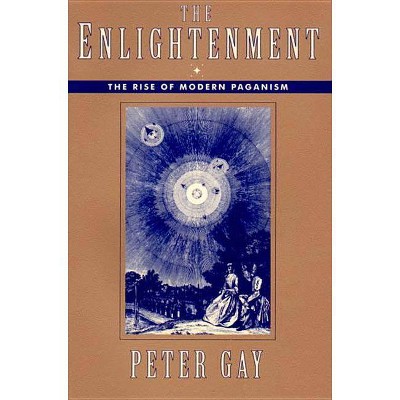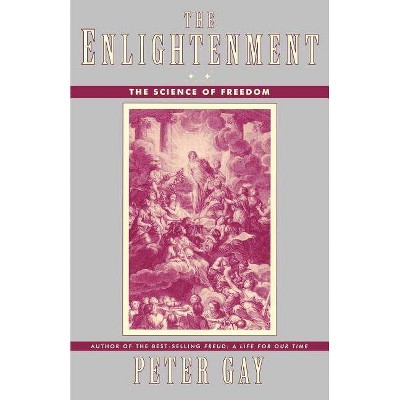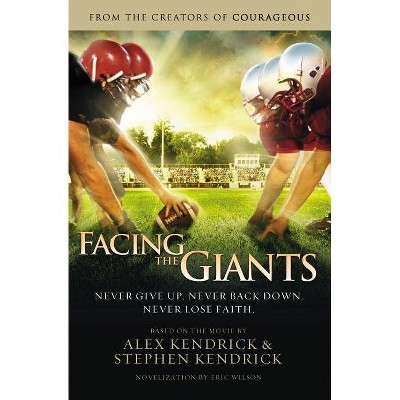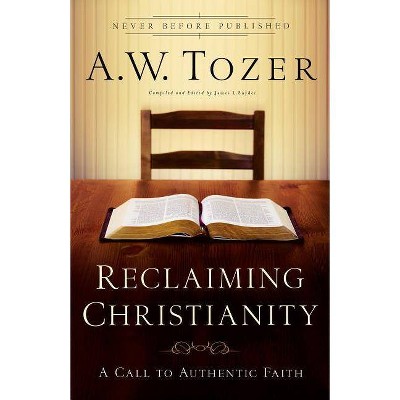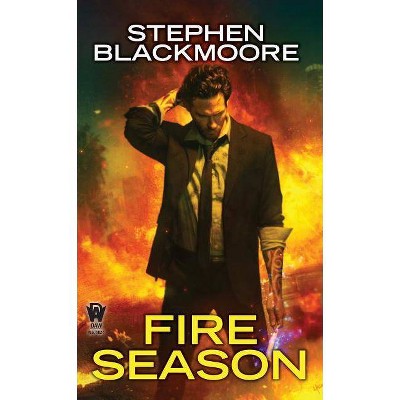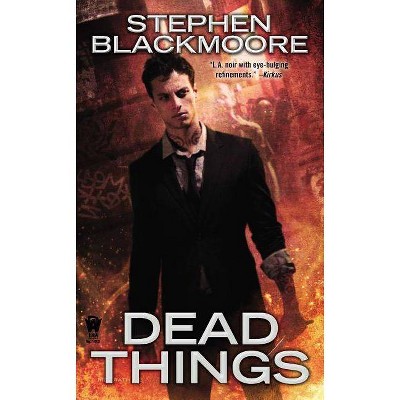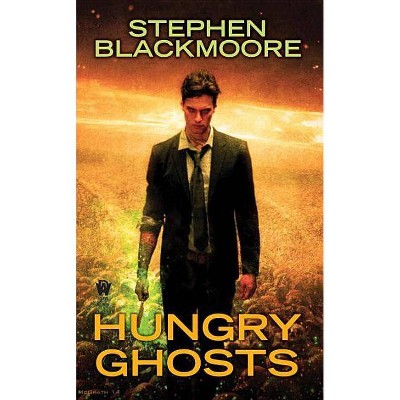Reclaiming the Enlightenment - by Stephen Eric Bronner (Paperback)
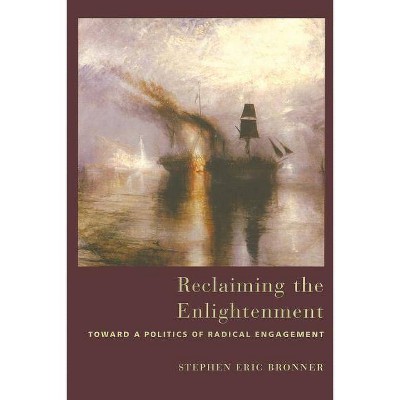
Similar Products
Products of same category from the store
AllProduct info
<p/><br></br><p><b> About the Book </b></p></br></br><p>Since the mid-twentieth century, intellectuals have attacked the Enlightenment for its imperialism, eurocentrism, and scientism and for the sexism and racism of some of its major representatives. Eager to reclaim the Enlightenment from purely philosophical and cultural interpretations, Bronner shows that the Enlightenment's notion of political engagement keeps democracy fresh and alive by providing a practical foundation for fostering institutional accountability, opposing infringements on individual rights, instilling an enduring commitment to social reform, and building a cosmopolitan sensibility. This forceful and timely reinterpretation of the Enlightenment and its powerful influence on contemporary political life is a resounding wake-up call to critics on both the left and the right.</p><p/><br></br><p><b> Book Synopsis </b></p></br></br><p>Since the mid-twentieth century, intellectuals have attacked the Enlightenment for its imperialism, eurocentrism, and scientism and for the sexism and racism of some of its major representatives. Eager to reclaim the Enlightenment from purely philosophical and cultural interpretations, Bronner shows that the Enlightenment's notion of political engagement keeps democracy fresh and alive by providing a practical foundation for fostering institutional accountability, opposing infringements on individual rights, instilling an enduring commitment to social reform, and building a cosmopolitan sensibility. This forceful and timely reinterpretation of the Enlightenment and its powerful influence on contemporary political life is a resounding wake-up call to critics on both the left and the right.</p><p/><br></br><p><b> Review Quotes </b></p></br></br><br><i>Reclaiming the Enlightenment</i> is a vigorous and thought-provoking book.--Sankar Muthu "Perspectives of Politics "<br><br>An important call to recover our Enlightenment roots in an agae characterized by a loss of reason and rational discourse. Recommended.--Henry L. Carrigan Jr. "Library Journal "<br><br>Stephen Bronner has written a much-needed and never-completed sequel to Adorno and Horkheimer's classic <i>Dialectic of Enlightenment</i>. His powerful defense of political liberty, social justice, and cosmopolitanism is the best extension of the Enlightenment legacy we have. His challenge to one-eyed rationalists, all-or-nothing romantics, and self-pitying nihilists is powerful and persuasive.--Cornel West<br><br>Stephen Bronner offers a persuasive 'rehabilitation' of the Enlightenment in which he argues forcefully that despite the demolition of reason by left 'dialectical' critics, the Age of Reason remains a valuable source of progressive thinking and radical insights. An important work for students and scholars as well as for political practitioners.--Benjamin R. Barber, author of <i>Jihad vs. McWorld</i> and <i>Fear's Empire</i><br><br>Stephen Bronner shows how today's Left has impoverished, even poisoned itself by sliding unawares into the language and imagery of the European Counter-Enlightenment, the movement against 1776 and 1789. But he also shows us how the not-quite-lost language of the Enlightenment can be our Magic Flute, if we just have the courage to grasp it and play our own variations on its themes.--Marshall Berman, author of <i>All that is Solid Melts Into Air</i><br><br>Stephen Bronner's study of the Enlightenment and its reception is not only superb but timely. Bronner rescues the Enlightenment from critics of both the left and the right. In the future, anyone who wants to defend arguments about ethical reason or scientific knowledge based on local prejudices will have to deal with Bronner's decisive arguments.--Philip Green, author of <i>Equality and Democracy</i><br><br><p><i>Reclaiming the Enlightenment</i> is a vigorous and thought-provoking book.</p>--Sankar Muthu"Perspectives of Politics" (01/01/0001)<br><br><p>An important call to recover our Enlightenment roots in an agae characterized by a loss of reason and rational discourse. Recommended.</p>--Henry L. Carrigan Jr. "Library Journal "<br><br><p>Stephen Bronner has written a much-needed and never-completed sequel to Adorno and Horkheimer's classic <i>Dialectic of Enlightenment</i>. His powerful defense of political liberty, social justice, and cosmopolitanism is the best extension of the Enlightenment legacy we have. His challenge to one-eyed rationalists, all-or-nothing romantics, and self-pitying nihilists is powerful and persuasive.</p>--Cornel West<br><br><p>Stephen Bronner offers a persuasive 'rehabilitation' of the Enlightenment in which he argues forcefully that despite the demolition of reason by left 'dialectical' critics, the Age of Reason remains a valuable source of progressive thinking and radical insights. An important work for students and scholars as well as for political practitioners.</p>--Benjamin R. Barber, author of <i>Jihad vs. McWorld</i> and <i>Fear's Empire</i><br><br><p>Stephen Bronner shows how today's Left has impoverished, even poisoned itself by sliding unawares into the language and imagery of the European Counter-Enlightenment, the movement against 1776 and 1789. But he also shows us how the not-quite-lost language of the Enlightenment can be our Magic Flute, if we just have the courage to grasp it and play our own variations on its themes.</p>--Marshall Berman, author of <i>All that is Solid Melts Into Air</i><br><br><p>Stephen Bronner's study of the Enlightenment and its reception is not only superb but timely. Bronner rescues the Enlightenment from critics of both the left and the right. In the future, anyone who wants to defend arguments about ethical reason or scientific knowledge based on local prejudices will have to deal with Bronner's decisive arguments.</p>--Philip Green, author of <i>Equality and Democracy</i><br><br><P>"Reclaiming the Enlightenment" is a vigorous and thought-provoking book.--Sankar Muthu"Perspectives of Politics" (01/01/0001)<br><br><P>Stephen Bronner has written a much-needed and never-completed sequel to Adorno and Horkheimer's classic "Dialectic of Enlightenment." His powerful defense of political liberty, social justice, and cosmopolitanism is the best extension of the Enlightenment legacy we have. His challenge to one-eyed rationalists, all-or-nothing romantics, and self-pitying nihilists is powerful and persuasive.--Cornel West<br><br><P>Stephen Bronner offers a persuasive 'rehabilitation' of the Enlightenment in which he argues forcefully that despite the demolition of reason by left 'dialectical' critics, the Age of Reason remains a valuable source of progressive thinking and radical insights. An important work for students and scholars as well as for political practitioners.--Benjamin R. Barber, author of "Jihad vs. McWorld" and "Fear's Empire"<br><br><P>Stephen Bronner shows how today's Left has impoverished, even poisoned itself by sliding unawares into the language and imagery of the European Counter-Enlightenment, the movement against 1776 and 1789. But he also shows us how the not-quite-lost language of the Enlightenment can be our Magic Flute, if we just have the courage to grasp it and play our own variations on its themes.--Marshall Berman, author of "All that is Solid Melts Into Air"<br><br><P>Stephen Bronner's study of the Enlightenment and its reception is not only superb but timely. Bronner rescues the Enlightenment from critics of both the left and the right. In the future, anyone who wants to defend arguments about ethical reason or scientific knowledge based on local prejudices will have to deal with Bronner's decisive arguments.--Philip Green, author of "Equality and Democracy"<br><br><P> "Reclaiming the Enlightenment" is a vigorous and thought-provoking book.--Sankar Muthu"Perspectives of Politics" (01/01/0001)<br><br><P>An important call to recover our Enlightenment roots in an agae characterized by a loss of reason and rational discourse. Recommended.--Henry L. Carrigan Jr. "Library Journal "<br><br>" "Reclaiming the Enlightenment" is a vigorous and thought-provoking book." -- Sankar Muthu, "Perspectives of Politics"<br><br>"An important call to recover our Enlightenment roots in an agae characterized by a loss of reason and rational discourse. Recommended." -- "Library Journal"<br><br>"Stephen Bronner has written a much-needed and never-completed sequel to Adorno and Horkheimer's classic "Dialectic of Enlightenment," His powerful defense of political liberty, social justice, and cosmopolitanism is the best extension of the Enlightenment legacy we have. His challenge to one-eyed rationalists, all-or-nothing romantics, and self-pitying nihilists is powerful and persuasive." -- Cornel West<br><br><P>"important call...recommeded" -- "Library Journal"<br><br><P>"A vigorous and thought-provoking book." -- Sankar Muthu, "Political Theory"<br><br><P>"Simultaneously a scholarly study and an impassioned manifesto, this masterful book by Bronner responds to the left-wing critique of the Enlightenment." -- "Choice"<br><br>"important call...recommeded" -- Library Journal <br><br>"A vigorous and thought-provoking book." -- Sankar Muthu, Political Theory <br><br>"Simultaneously a scholarly study and an impassioned manifesto, this masterful book by Bronner responds to the left-wing critique of the Enlightenment." -- Choice <br><br>"A vigorous and thought-provoking book." -- Sankar Muthu, "Political Theory"<br><br>"important call...recommeded" -- "Library Journal"<br><br>"Simultaneously a scholarly study and an impassioned manifesto, this masterful book by Bronner responds to the left-wing critique of the Enlightenment." -- "Choice"<br><p/><br></br><p><b> About the Author </b></p></br></br>Stephen Eric Bronner is Distinguished Professor of Political Science and director of civic diplomacy and human rights at the Institute for World Challenges, Rutgers University. He is the senior editor of <i>Logos: A Journal of Modern Society and Culture</i> and the author of many books, including <i>Imagining the Possible: Radical Politics for Conservative Times; Of Critical Theory and Its Theorists; and Socialism Unbound</i>.
Price History
Price Archive shows prices from various stores, lets you see history and find the cheapest. There is no actual sale on the website. For all support, inquiry and suggestion messagescommunication@pricearchive.us
